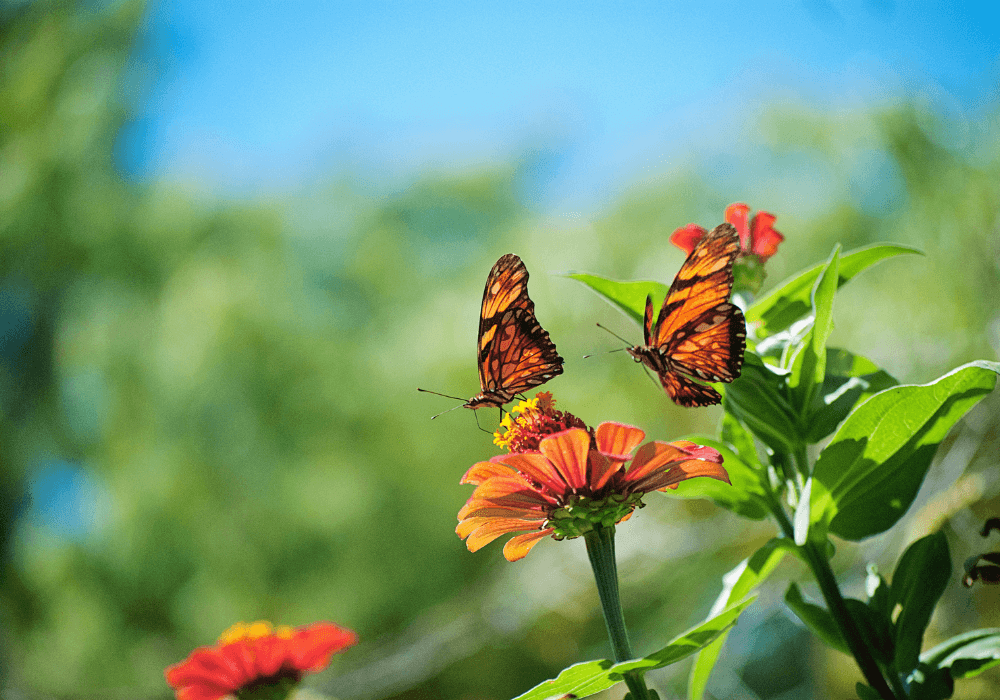Indoor plants are more than just décor; they’re vibrant companions, living air purifiers, and subtle reminders of nature’s complexity. But there’s a hidden world within their petals, leaves, and stems, one too tiny for the naked eye.
Beneath their delicate petals and lush leaves lies a universe of microscopic textures, pollen grains, and natural patterns waiting to be explored.
In this blog, we’ll explore 16 indoor plants with flowers and take a closer look at the fascinating microscopic details hidden within their blooms.
Whether you're a plant enthusiast, a curious observer, or someone who loves discovering the unseen, this deeper view into the inner worlds of flower plants for home may change how you see your houseplants forever.
The Microcosm in Your Home Garden
Whether you're tending to a sunlit shelf of African Violets or a hanging orchid in your reading nook, you’re living with organisms that perform quiet miracles. Photosynthesis. Reproduction. Adaptation. Even defense mechanisms. All of this happens at a cellular or structural level invisible to the naked eye.
Every indoor bloom, no matter how ordinary it seems, holds intricate details that reveal its evolutionary brilliance—like the spiral of a petal’s surface, the sticky texture of the stigma, and the striking geometry of visible pollen grains
Yet most plant lovers never get to experience this layer of beauty until they start observing their plants through a microscope or macro camera.
Rediscovering the Familiar Through Close-Up Photography
Over the past few years, there’s been growing interest in home microscopy and macro photography. No longer limited to labs or professionals, the tools for close-up plant study have become more accessible. The trend is catching on among hobbyists, science educators, artists, and even indoor gardeners who want to observe more than growth; they want to understand structure.
This intersection of nature and tech opens up a new way to engage with houseplants, and it’s here that a device like the MicroCam X1 becomes an invaluable companion.
How the MicroCam X1 Enhances Plant Observation
Equipped with 400X magnification, a 4K digital camera, and a 3 cm macro focus, this digital microscope camera transforms your casual flower viewing into a world-class botanical tour.
It bridges curiosity and clarity. You can zoom in on the velvet of African Violet petals or explore the waxy sheen of Hoya blooms, all in crisp, color-accurate detail.
But this isn’t about the gadget. It’s about what it unlocks. So let’s look at 20 indoor plants with flowers and what they reveal when observed up close with tools like MicroCam X1.
16 Flower Plants for Home and Their Microscopic Secrets

1. African Violet: Velvety petals shimmer with delicate, iridescent trichomes.
2. Peace Lily: Elegant white spathe surrounds a prominent central spadix.
3. Begonia: Glossy, textured leaves and vividly colored flowers.
4. Orchid (Phalaenopsis): Symmetrical blooms with intricate, eye-catching patterns.
5. Kalanchoe: Clusters of waxy, long-lasting blooms.
6. Jasmine: Bright white blossoms known for their fragrance.
7. Anthurium: Glossy red or pink spathes with a central spadix.
8. Lipstick Plant: Bold, tube-shaped red flowers with a glossy finish.
9. Christmas Cactus: Segmented stems with vivid, festive flowers
10. Amaryllis: Large, trumpet-shaped blooms with striking form.
11. Impatiens: Bold, continuous blooming flowers.
12. Cyclamen: Reflexed petals resembling fluttering butterfly wings.
13. Bromeliad: Rosette foliage topped with a central bloom.
14. Hoya (Wax Plant): Glossy, star-like flowers with waxy texture
15. Miniature Roses: Small but intricately layered petals in soft hues.
16. Oxalis: Graceful white or pink blossoms atop clover-like leaves.
Why This Matters: Beyond Aesthetic Beauty
Close-up observation of indoor plants with flowers isn’t just an artistic endeavor. It’s a window into how nature designs with intention. From defensive hairs to reproductive textures, every detail serves a function.
Using tools like MicroCam X1, a 3 cm macro camera, you begin to understand your houseplants not just as ornaments but as living organisms with layered complexity. For educators, it’s an incredible way to teach botany interactively. For photographers, it’s a new canvas. And for everyday plant lovers, it’s a path to a deeper connection.
What You Can Learn from Microscopic Plant Photography

By capturing these hidden details, the MicroCam X1 transforms ordinary houseplants into subjects of scientific and artistic fascination. Here’s what you can gain:
- Educational Insight: See the reproductive structures, and adaptations up close.
- Creative Exploration: Take artistic macro photography for social media or botanical journals.
- Mindful Observation: Develop a deeper, slower appreciation for plants’ quiet complexity.
Final Thoughts
The next time you water your Peace Lily or admire your blooming Orchid, know that what you see is only a fragment of its story. Tucked within every flower is an intricate masterpiece, one that becomes visible when you take a closer look.
By combining natural curiosity with the power of modern digital microscopy, tools like the MicroCam X1 make it possible to explore this beauty from your desk, classroom, or living room.



